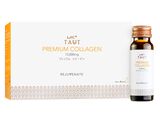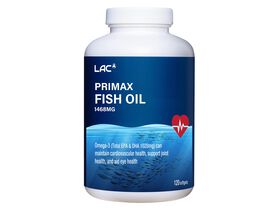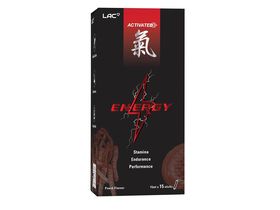What is collagen?

Click here to learn more about fun facts of collagen.
Collagen is the most abundant protein in our bodies. It is present in our muscles, skin, bones and tendons, working as a "glue" that helps hold the body together. It gives our skin strength and elasticity, and is responsible for the replacement and renewal of dead skin cells.
What affects collagen?
Our body’s collagen production will be naturally slows down year by year. As a result, we notice wrinkles and sagging skin, as well as weaker cartilage in our joints.
Other factors1 that contribute to depleting collagen levels include:
1. Prolonged sun exposure
Ultraviolet radiation can reduce collagen production, therefore try to avoid excessive sun exposure.
2. Eating too much sugar and refined carbs
Sugar interferes with collagen’s ability to repair itself. Minimize your consumption of added sugar and refined carbs.
3. Smoking
Smoking reduces collagen production. This can impair wound healing and lead to wrinkles.
Benefits of collagen
Collagen has many functions apart from supporting skin health. Here are the key benefits:
1. Skin
As we age, collagen production declines. This results in sagging skin and weaker skin elasticity. Increasing collagen in your body can help to firm your skin, increase smoothness, and repair your skin cells.
2. Reduce cellulite or stretch marks
When our skin loses its elasticity, more visible cellulite will begin to surface. Improving your skin’s elasticity through collagen will help reduce that dimpling on your skin.
3. Boost metabolism & energy
Glycine, found in collagen, helps with the regulation of blood sugar by converting glucose into energy. It also supports muscle development by improving muscle strength and performance. Complement your collagen supplementation with vitamin C to support collagen synthesis.
4. Strengthens nails & teeth
Collagen protein is the building block of your fingernails and teeth. Adding collagen into your diet can keep your nails strong and teeth healthy!
5. Joints
Are your joints starting to feel jittery? That’s a loss of collagen rearing its head. When we lose collagen, our tendons and ligaments start moving with less ease, leading to stiffness, swollen joints and more. What’s more, a recent study has found that collagen it is effective in treating osteoarthritis and other joint disorders.
6. Detox
For those who are intending to detox, collagen is extremely helpful. That’s because glycine is a precursor amino acid for glutathione, which supports liver health and ability to detoxify toxic substances.
Great foods for boosting collagen
There are some foods2 that are able to support and boost your body’s collagen production:
1. Aloe vera
Aloe vera gel has long been used for healing and soothing wounds. The reason it works to treat cuts and burns is because the aloe vera plant increases collagen production when applied topically or even taken orally. This cell-growth stimulating property can help boost collagen production in your skin. It can be applied directly to the skin in pure form, or in the form of the many products on the market that contain it.
2. Foods rich in Vitamin C
Vitamin C is critical for the synthesis of hyaluronic acid. Hyaluronic acid has been touted for speeding up recovery time and relieving painful joints. Without adequate levels of vitamin C, your body will not gain the full benefit of foods containing hyaluronic acid. Hyaluronic acid is naturally found in the body, but it decreases as we age. Eating foods rich in vitamin C and amino acids can increase the levels of hyaluronic acid and collagen in the body as both are important for skin. Foods such as oranges, red peppers, kale, Brussels sprouts, broccoli, and strawberries are all rich in vitamin C.
3. Ginseng
Ginseng is absorbed into the skin without causing the adverse reactions that many chemical pharmaceuticals cause, and helps skin keep its original shape. It has also been found to promote the growth of collagen. Studies have shown ginseng’s ability to preserve skin against UVB ray damage from the sun. The antioxidants that are released into your bloodstream when you take a ginseng supplement or drink tea that contains ginseng can protect healthy cells and contribute to glowing skin.
4. Cilantro
Cilantro, also known as coriander leaf, is an herb commonly called for in recipes. It contains vitamin C, which has been linked to boosts in collagen production. Cilantro contains linolenic acid, which has been as a powerful anti-aging factor for your skin. Linolenic acid contains antioxidants that fight the free radicals in your bloodstream, which break down healthy skin cells.
5. Algae
Marine plant ingredients are becoming more and more popular as part of beauty routines. This is because most skin damage is caused by “oxidation” — the exposure of your skin to elements like pollution, which can damage cell growth. Algae are able to prevent oxidation from zapping your skin of its elasticity and collagen.
References:
1 https://www.healthline.com/nutrition/collagen#collagen-damaging-behaviors
2 https://www.healthline.com/health/ways-to-boost-collagen








